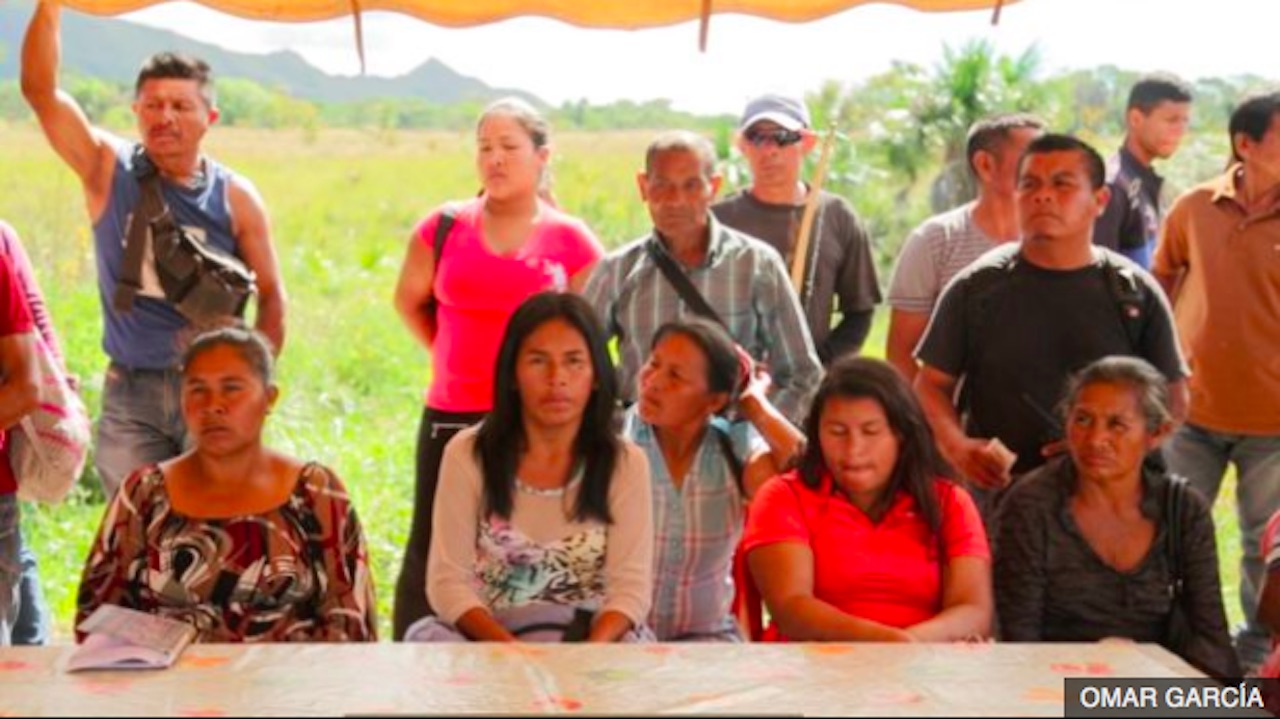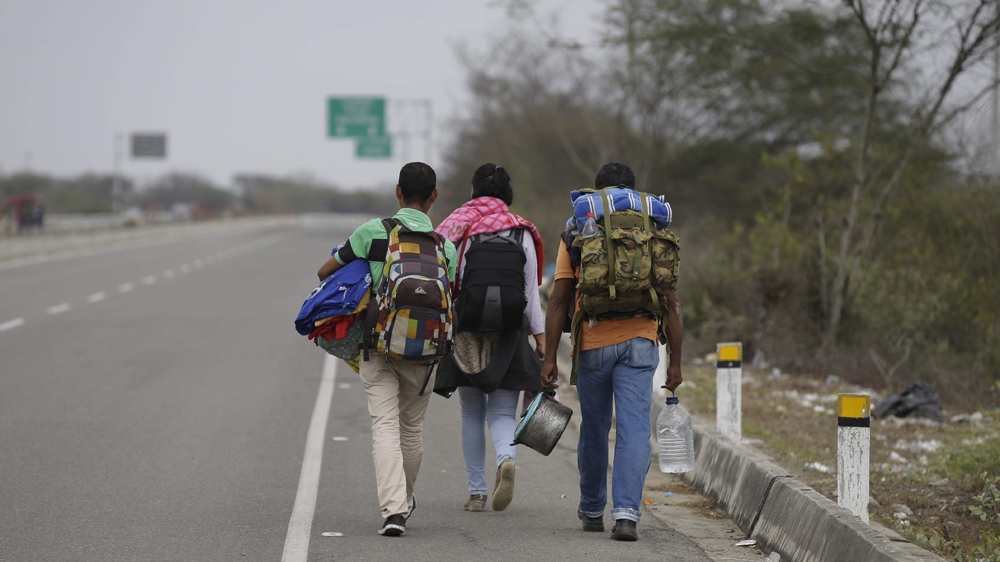After more than three decades hanging like the sword of Damocles over the heads of non-governmental organizations (NGOs), the draft Law on International Cooperation seems closer to becoming a real threat to Venezuelan civil society. The reason? On April 15, the Commission for Foreign Policy, Sovereignty and Integration of the National Assembly under control of the ruling party approved a draft that would limit international financing to civil associations.
The draft has the same structure as the text presented in 2005. Back then, the initiative was halted due to the threat it posed to the defense of human rights and the autonomy of NGOs. However, the Government of Nicolás Maduro dusted off the issue amid an attack against civil society that has included raids and arrests of activists, as well as the order to monitor financial operations conducted by civil organizations; All while country is still trying to digest the decision to order all charitable, humanitarian and human rights assistance groups to deliver, among others, information about their donors and beneficiaries to the National Office against Organized Crime and Terrorism Financing.
In face of this situation, Acceso a la Justicia considers it appropriate to warn about what the draft Law on International Cooperation consists of through seven questions.
1. What is the purpose of the Government with this legislative proposal?
It seeks to control the funds that NGOs receive from abroad, with the possible intention of hindering and neutralizing the programs, projects, technical and scientific cooperation actions, international assistance, and other activities carried out by these associative entities in Venezuela.
Through this bill, the Government of Nicolás Maduro would not only control foreign cooperation in the country but would be empowered to interfere in the administration of the resources obtained by NGOs from abroad. This constitutes a serious violation of the private autonomy of these associations, especially those that denounce human rights violations and provide humanitarian assistance, which requires autonomy from the Government to operate under the international mandates on the matter and their own nature.
2. How does the Government intend to carry out an intervention against NGOs?
According to the bill, NGOs would be required to sign up for a special registry called the Integrated System for the Registry of Non-Governmental Organizations, attached to a body created by the President of the Republic. Only registered NGOs would be those recognized as legal by the national government and, consequently, could receive contributions from abroad under the terms authorized by the National Executive branch.
The NGOs that fail to register would be excluded from the law and would be banned from receiving financial or other resources from abroad. In consequence, they would run the risk of disappearing due to the lack of resources, which would violate their freedom to associate. In this regard, it is important to note that Russia approved a similar regulation in 2015, which allowed the government of Vladimir Putin to declare foreign NGOs “undesirable” in order to prohibit their operation in the Russian territory.
3. What requirements must NGOs meet to sign up for the special registry?
The proposal refers to a regulation that will establish the requirements that must be met and the documents that national and foreign NGOs must provide. This does not generate any security or legal certainty, since it gives the Executive branch the discretionary power to arbitrarily request a list of requirements that make it difficult for NGOs to comply with.
4. What is the difference between the Unified Registry of Obligated Subjects, created by Order 001-2021 of the Office against Organized Crime and Terrorism Financing, and the Integrated Registry System for Non-Governmental Organizations?
Although there is already a ruling that partially modifies it, the new registry, much like the previous one, obliges NGOs to register with the National Office for Organized Crime and Terrorism Financing. The only thing that changes is that the new rule does not provide for the handing out of information on the beneficiaries nor does it refer to the sanctions provided by the Organic Law against Organized Crime and Terrorism Financing.
For its part, the registry mentioned in the draft Law on International Cooperation seeks to establish a legal platform to suffocate NGOs, preventing them from receiving funding from foreign donors, given that the latter cannot transfer the funds intended for NGOs through the Government according to international regulations, making it impossible to finance the organizations.
In any case, both government measures are forms of harassment that seek to neutralize the work of organized civil society and, above all, prevent it from continuing to denounce and defend human rights before an authoritarian government.
5. Do these initiatives affect any fundamental rights or treaties?
Yes. In fact, they represent a serious violation of the right to freedom of association, contemplated in article 52 of the Constitution, which establishes that “everyone has the right to associate for lawful purposes.” And, precisely, the possibility for NGOs to access or receive funds to function is part of the right to freedom of association.
The initiative also violates international norms, since freedom of association is a right recognized in international treaties. It is enshrined in article 22 of the International Covenant on Civil and Political Rights; In this sense, it is worth mentioning Communication No. 1274/2004, of the United Nations Human Rights Committee, in which it states that:
“[T]he right to freedom of association relates not only to the right to form an association, but also guarantees the right of such an association freely to carry out its statutory activities. The protection afforded by article 22 extends to all activities of an association”
The aforementioned would include the financing of associative entities, such as NGOs.
The Declaration on the Elimination of All Forms of Intolerance and Discrimination Based on Religion or Belief, approved in 1981 by the United Nations General Assembly, also expressly contains the right of access to financing, by establishing that “the right to freedom of thought, conscience, religion or belief shall include, inter alia, (…) the [freedom] to solicit and receive voluntary financial and other contributions from individuals and institutions ”(article 6.f).
For its part, article 13 of the 1998 UN Declaration on Human Rights Defenders states that “Everyone has the right, individually and in association with others, to solicit, receive and utilize resources for the express purpose of promoting and protecting human rights and fundamental freedoms through peaceful means”.
Finally, Article 16 of the American Convention on Human Rights also recognizes the right to association and states that:
“The exercise of this right shall be subject only to such restrictions established by law as may be necessary in a democratic society, in the interest of national security, public safety or public order, or to protect public health or morals or the rights and freedoms of others.”
It is worth noting that this right not only implies the autonomy or freedom of people to form an NGO but also to set and pursue their organization’s goals, choose its internal structure, programs, and activities, as well as the means to achieve them, which necessarily includes access to national and international funds. Thus, the legislative proposal is far from complying with the principle of autonomy of associative entities established in the Constitution.
6. What has the Inter-American Court of Human Rights said about the cases in which the State has tried to obstruct the foreign financing of organized civil society?
The Inter-American Court has indicated that the exercise of the freedom of association implies the right to set into motion the organization’s internal structure, activities, and action program, without any intervention by the public authorities that could limit or impair the exercise of the respective right (Baena Ricardo and Others vs. Panama, judgment February 2, 2001, Series C No. 72).
Likewise, the Inter-American Commission on Human Rights (IACHR) has also commented in several cases about the restrictions on foreign financing of NGOs by government entities. In the Second Report on the situation of human rights defenders in the Americas of December 2011, the organization warned that:
As part of the freedom of association, “States should allow and facilitate human rights organizations’ access to foreign funds in the context of international cooperation,” as well as “refrain from restricting the means of financing of human rights organizations. (…) Under this logic, the organizations that are created with the purpose of coordinating or monitoring the reception and management of resources at the state level should be oriented to promoting and not restricting the possibilities of financing of non-governmental human rights organizations”.
The same report further indicates that:
“[The scope of government] agencies that administer special funds to pool resources that are received in the context of international cooperation (…) should be limited so that their powers are limited to executing and supporting the government’s international cooperation policies when the State has raised the funds, and not when the international cooperation funds are raised by and designated for civil society organizations.”
7. What have international organizations said about the draft Law on International Cooperation?
The initiative of the Maduro government has not gone unnoticed by international bodies for the protection of human rights. Thus, the IACHR expressed concern about it, considering that it could “create obstacles to the formation, independence, and functioning of non-governmental organizations” and therefore asked the authorities to reconsider it.
The text was also mentioned with concern in the two universal periodic reviews that the country has undergone at the United Nations.
The Andean Commission of Jurists and almost all of the world’s most respected Human Rights organizations also expressed their objections.
How does it affect Venezuelans?
All of the above shows us that the Government of Nicolás Maduro has little interest in promoting freedom of association. Its policy is to dictate increasingly restrictive measures that impede the exercise of that freedom, a key element in a social state of law and justice, especially by organizations that defend human rights in the country and provide humanitarian assistance.
This will also affect the programs, social projects, and humanitarian activities carried out by the NGOs, in addition to silencing the voice that denounces the violation of human rights in the country before the international community.
Translated by José Rafael Medina




